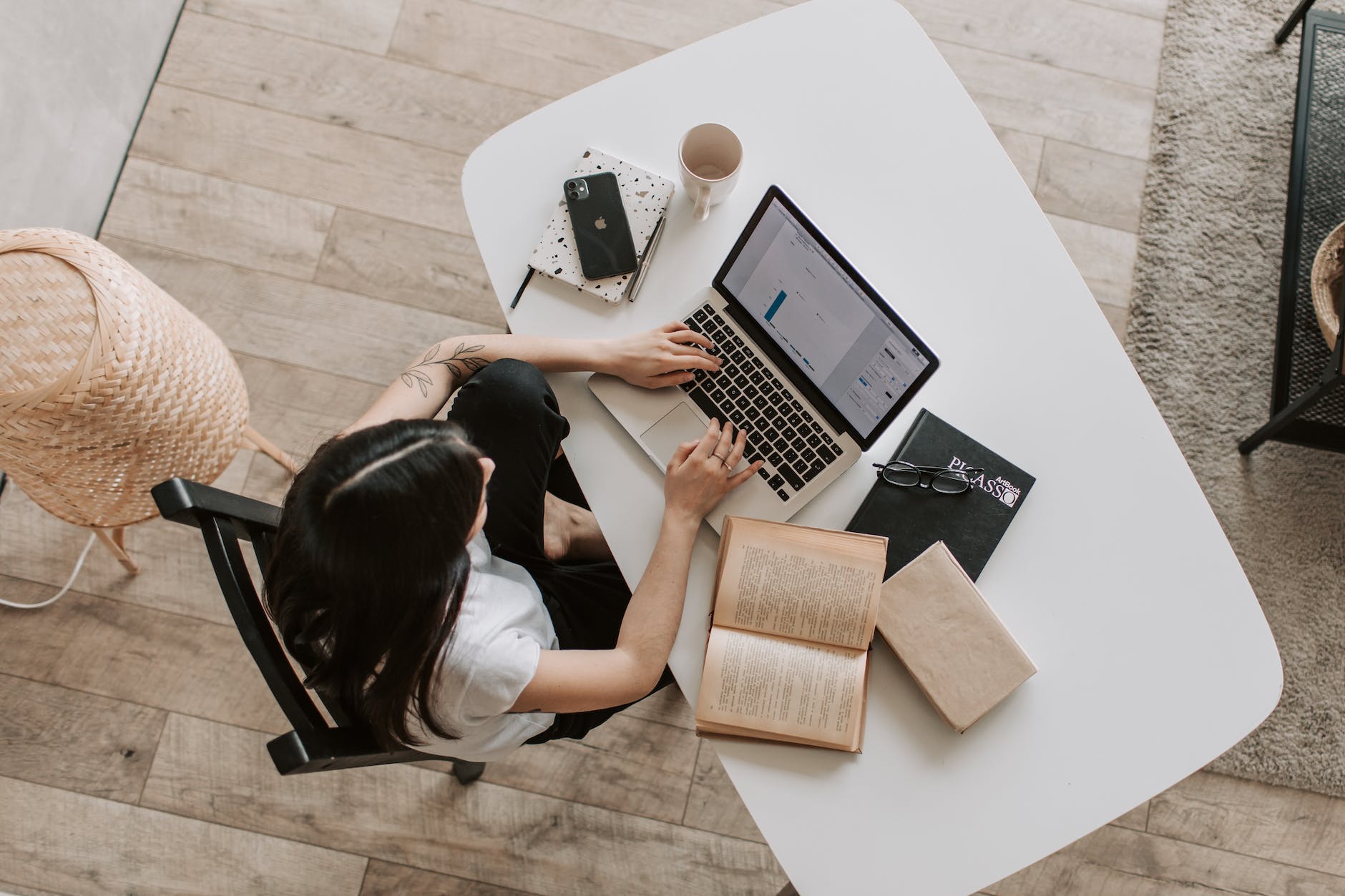Studying is an essential part of academic success, but it’s easy to get caught in the trap of studying harder rather than smarter. We often believe that the more time we spend with our books and notes, the more productive a study session can be. However, this approach can lead to burnout, lack of focus, and diminishing returns. In this article, we’ll explore ten tips to help you study smarter and maximize your study session productivity.
Understanding the Importance of Effective Studying
Effective studying is more than just spending hours upon hours with your textbooks. It’s about utilizing strategies and techniques that optimize your learning and retention. By understanding the impact of a productive study session, you can make the most of your study time.
When it comes to effective studying, it’s not just about the quantity of time you spend, but also the quality. One important aspect is creating a conducive environment for learning. Find a quiet and comfortable space where you can focus without distractions. This will help you maintain your concentration and absorb information more effectively.
Another key factor in effective studying is having a clear plan and setting specific goals. Before you start studying, take a few minutes to outline what you want to achieve during your study session. This will give you a sense of direction and help you stay on track. Breaking down your study material into smaller, manageable chunks can also make the task feel less overwhelming.
The Impact of Productive Study Sessions
When your study session is productive, you absorb information more effectively and retain it for longer periods. Productive study sessions allow you to grasp complex concepts, connect ideas, and synthesize information. This depth of understanding enhances your ability to apply knowledge and perform well in exams and assignments.
One effective study technique is active learning. Instead of passively reading or listening, actively engage with the material. Take notes, ask questions, and try to explain concepts in your own words. This not only helps reinforce your understanding but also encourages critical thinking and deeper learning.
Furthermore, incorporating different study strategies can enhance your learning experience. For example, visual learners may benefit from creating mind maps or diagrams to organize information, while auditory learners may find it helpful to record themselves explaining key concepts and listen to them later.
Why Studying Harder Isn’t Always Better
While putting in effort is important, studying harder isn’t necessarily synonymous with studying smarter. Spending endless hours buried in your books without a strategic approach can lead to mental exhaustion and decreased focus. Moreover, it’s inefficient to spend excessive time on topics you already understand well.
Instead of sheer quantity, focus on the quality of your study session. One effective technique is spaced repetition, which involves reviewing information at regular intervals over time. This method has been shown to improve long-term retention and prevent forgetting.
Another vital aspect to consider is taking breaks. Research suggests that taking short breaks during study sessions can actually improve productivity and focus. Use these breaks to relax, stretch, or engage in activities that help clear your mind. This will allow you to return to your study material with renewed energy and concentration.
In conclusion, effective studying is about more than just spending time with your textbooks. It involves:
- Creating a Conductive Learning Environment
- Setting Goals
- Utilizing Effective Learning Techniques
- Balancing Comfort and Rest
By implementing these strategies, you can optimize your study time and enhance your overall learning experience.
Setting the Stage for Successful Studying
Before diving into your study materials, it’s essential to create an optimal environment that fosters concentration and minimizes distractions. By being intentional about your study environment, you can maximize your ability to focus and absorb information.
Speaking of study environment, have you read our article on creating your ideal study aesthetic? If not you can find it here: Study Aesthetic 101: How to Design a Productive Study Space
When it comes to studying, the environment plays a crucial role in determining your productivity and effectiveness. Imagine trying to concentrate on complex concepts while surrounded by noise and constant interruptions. It would be challenging, if not impossible, to retain information or grasp difficult concepts.
Creating a Conducive Study Environment
Find a quiet space where you can concentrate without interruptions. This could be a dedicated study room, a library corner, or a cozy nook in your favorite coffee shop. The key is to choose a location that allows you to immerse yourself in your studies without any external distractions.
Once you’ve found the perfect spot, it’s time to declutter. Remove any potential distractions like your phone, social media apps, or noisy surroundings. Put your phone on silent mode or keep it in a different room altogether. This way, you won’t be tempted to check your notifications or get lost in the endless scroll of social media.
Consider using noise-canceling headphones or playing soft instrumental music to create a calming atmosphere that aids concentration. Some people find that background music helps them focus, while others prefer complete silence. Experiment with different options and find what works best for you.
The Role of Distraction-Free Spaces
Avoid studying in places associated with leisure or relaxation, such as your bedroom or living room. These areas are filled with distractions that can easily derail your study session. Your bed may be comfortable, but it’s not the ideal place to tackle complex equations or memorize important facts.
Instead, designate a specific area solely for studying. It could be a desk in your home office, a table in the library, or even a cozy corner in a quiet cafe. This helps condition your mind to associate that space with focused work, improving your ability to concentrate and retain information. When you sit down in that designated study area, your brain knows it’s time to shift into study mode.
Furthermore, having a dedicated study space allows you to organize your materials and create a system that supports your learning. You can have all your textbooks, notebooks, and stationery within reach, making it easier to stay organized and avoid wasting precious study time searching for misplaced materials.
Remember, a conducive study environment goes beyond just physical aspects. It also includes mental preparation. Before you start studying, take a few moments to clear your mind, set your intentions, and visualize success. This mental preparation can help you enter a focused and productive state, ready to absorb information and tackle your study materials with clarity and determination.
Planning and Organizing Your Study Sessions
Approaching your study session with a clear plan and organized structure sets the stage for efficient and effective learning. By implementing strategies that prioritize your study topics and manage your time effectively, you can optimize your study sessions.
When it comes to studying, having a well-thought-out study schedule can make a world of difference. Creating a study schedule that outlines specific time slots for different subjects or topics helps you allocate an appropriate amount of time to each area of study. This ensures that you cover all necessary materials without neglecting any topic. Stick to the schedule as much as possible to build consistency and discipline in your study routine.
But how do you determine which topics deserve more attention than others? Prioritizing your study topics is key. Take the time to identify the most important and challenging topics that require additional attention. By doing so, you can allocate more time and energy to fully comprehend and internalize the material. Focusing on high-priority topics establishes a solid foundation for understanding related concepts.
Implementing Effective Study Techniques
To enhance your learning and retention, it’s crucial to adopt study techniques that align with how the brain best absorbs and recalls information. By leveraging techniques like the Pomodoro Technique and active recall, you can maximize your study productivity.
When it comes to studying effectively, it’s not just about spending hours with your books or notes. It’s about using the right strategies and techniques that optimize your brain’s ability to absorb and retain information. Let’s delve deeper into two powerful study techniques that have been proven to enhance learning and memory: the Pomodoro Technique and active recall.
The Pomodoro Technique: A Time Management Tool
The Pomodoro Technique involves breaking your study sessions into focused intervals, typically 25 minutes long, followed by short breaks of 5-10 minutes. This time management tool was developed by Francesco Cirillo in the late 1980s and has since gained popularity among students and professionals alike.
During each 25-minute study interval, known as a “Pomodoro,” you commit to focusing on a specific task or subject without any distractions. This intense concentration allows your brain to absorb information more efficiently and effectively. Once the Pomodoro is complete, you take a short break to rest and recharge.
These breaks are essential for preventing burnout and maintaining focus throughout your study session. By giving your brain a chance to rest and relax, you can avoid mental fatigue and sustain your productivity over longer periods.
Implementing the Pomodoro Technique requires discipline and self-control. It’s essential to resist the temptation to check your phone or engage in any other distractions during your study intervals. By dedicating yourself to focused, uninterrupted work for short bursts of time, you’ll be amazed at how much you can accomplish.
Active Recall and Spaced Repetition: Maximizing Memory Retention
While the Pomodoro Technique helps optimize your study time, it’s equally important to employ effective learning strategies that promote deep understanding and long-term memory retention. One such technique is active recall, which involves actively engaging with the study material rather than passively reviewing it.
Instead of simply re-reading your notes or textbooks, try testing yourself on the concepts or explaining them aloud as if you were teaching someone else. This active engagement forces your brain to retrieve information from memory, reinforcing your understanding and creating stronger neural connections.
Studies have shown that active recall enhances learning and improves long-term memory retention. By actively retrieving information, you strengthen the neural pathways associated with that knowledge, making it easier to recall in the future.
Another powerful technique that complements active recall is spaced repetition. Rather than cramming all your studying into a single session, spaced repetition involves reviewing information at intervals over time. By spacing out your study sessions, you reinforce your understanding and prevent forgetting.
Spaced repetition leverages the brain’s tendency to forget information over time. By revisiting the material at strategic intervals, you force your brain to retrieve and reinforce the information, making it stick in your long-term memory. This technique is particularly effective for subjects that require memorization, such as vocabulary or formulas.
By combining the Pomodoro Technique with active recall and spaced repetition, you create a powerful study routine that maximizes your learning potential. Remember, effective studying is not just about the quantity of time you spend, but also the quality of your techniques and strategies.
The Role of Breaks in Study Productivity
While it may seem counterintuitive, taking regular breaks during your study sessions is essential for maintaining focus and productivity. Your brain needs time to rest and recharge in order to absorb and process information efficiently.
When you engage in focused studying for extended periods of time, your brain becomes fatigued. Mental fatigue can lead to reduced cognitive performance, making it harder for you to concentrate and retain information. By taking short breaks, you give your brain the chance to replenish its energy, leading to better focus, improved creativity, and enhanced learning.
Why Your Brain Needs Breaks
Extended periods of intense concentration can lead to mental fatigue and reduced cognitive performance. By taking short breaks, you give your brain the chance to replenish its energy, leading to better focus, improved creativity, and enhanced learning.
During breaks, your brain transitions from a state of intense focus to a more relaxed state. This shift allows your brain to process and consolidate the information you have just learned. It also helps prevent information overload, as your brain can only absorb so much at once.
Additionally, breaks provide an opportunity for your brain to make connections and associations between different concepts. When you step away from your study materials and engage in a different activity, your brain continues to work in the background, making connections and integrating new information with existing knowledge. This process enhances your overall understanding and retention of the material.
How to Effectively Use Break Time
During your breaks, it’s important to engage in activities that help you relax and recharge. Stretching, going for a short walk, or practicing deep breathing exercises can rejuvenate both your body and mind.
Physical activity during breaks increases blood flow to your brain, delivering oxygen and nutrients that are essential for optimal cognitive function. It also helps reduce muscle tension and improves overall well-being, which can positively impact your study performance.
In addition to physical activities, you can also use break time to engage in mental relaxation techniques. Meditating, listening to calming music, or engaging in a creative hobby can help clear your mind and reduce stress. This mental rejuvenation allows you to return to your study materials with a refreshed perspective and renewed energy.
Furthermore, breaks can be an opportunity to socialize and connect with others. Engaging in conversations with friends or classmates about the material you are studying can provide different perspectives and insights. Discussion and collaboration can enhance your understanding and retention of the subject matter.
Maintaining Physical and Mental Health for Optimal Studying
To study effectively, it’s crucial to prioritize your physical and mental well-being. By taking care of your sleep, nutrition, and exercise, you provide your brain with the necessary fuel to perform at its best.
The Importance of Sleep in Learning
Sleep plays a vital role in consolidating memories and improving cognitive function. Aim for a consistent sleep schedule and ensure you get enough high-quality sleep each night. Avoid studying right before bed to give your brain time to unwind and prepare for restful sleep.
Nutrition and Exercise: Fuel for Your Brain
Eat a balanced diet rich in brain-boosting foods, such as fruits, vegetables, whole grains, and nuts. Stay hydrated by drinking plenty of water throughout the day. Regular physical activity also enhances cognitive function and reduces stress, so incorporate exercise into your daily routine.
Utilizing Technology to Enhance Study Sessions
Technology offers a wealth of resources and tools to augment your study sessions. By leveraging helpful apps and tools and using digital note-taking effectively, you can optimize your learning experience.
Helpful Apps and Tools for Studying
Explore study apps and online tools that can assist you in organizing your notes, creating flashcards, and tracking your study progress. Some popular options include Evernote, Quizlet, and Forest, which encourage focused work by planting virtual trees during your study sessions.
The Pros and Cons of Digital Note-Taking
Digital note-taking can be advantageous for its organization and searchability features. However, some studies suggest that taking handwritten notes promotes better understanding and retention. Experiment with both methods to determine which works best for you.
Review and Reflection: The Final Steps in Effective Studying
Your study session doesn’t end when you close your books. To solidify your learning and continuously refine your study habits, it’s crucial to regularly review and reflect on your progress.
The Importance of Regular Review
Set aside dedicated time to review previously covered material. Regular review strengthens your memory and helps you make connections between different concepts, reinforcing your understanding and preventing forgetting over time.
Reflecting on Your Study Habits and Making Adjustments
Periodically reflect on your study habits and techniques to identify what is working well and what needs improvement. Be open to making adjustments and trying new strategies based on your reflections. Developing self-awareness and adaptability are key to continual growth and improvement in your studying.
Conclusion: Embrace Smarter Studying for Better Results
By implementing these tips and strategies, you can transform your study sessions from arduous struggles to efficient and productive endeavors. Remember, studying smarter, not harder, is the key to maximizing your study session productivity and achieving academic success. Embrace these techniques, adapt them to your unique learning style, and enjoy the rewards of a more focused, effective, and fulfilling study experience.
Recap of Key Strategies for Maximizing Study Productivity
- Understand the importance of productive study sessions
- Create a conducive study environment
- Plan and organize your study sessions with a schedule
- Implement effective study techniques like the Pomodoro Technique and active recall
- Take regular breaks to maintain focus and prevent burnout
- Prioritize your physical and mental health
- Utilize technology to enhance your study experience
- Regularly review and reflect on your progress
Encouragement for Continued Growth and Improvement in Studying
Remember that studying is a lifelong skill, and it’s normal to face challenges along the way. Embrace a growth mindset and celebrate your progress, no matter how small. With dedication, perseverance, and the adoption of smarter studying techniques, you have the power to reach your academic goals and unlock your full potential.


